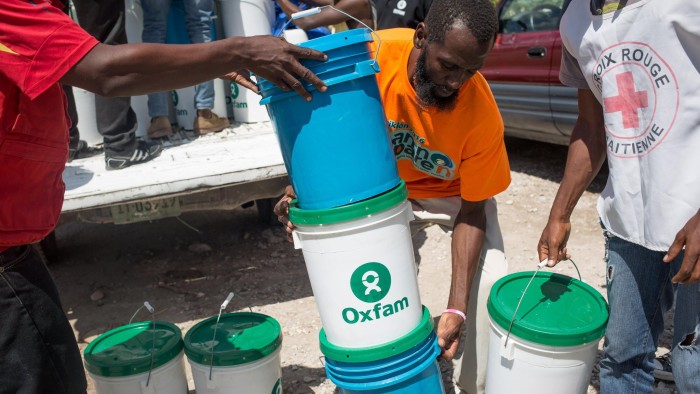Steady rise in UK charitable bequests worth more than £1m

Roula Khalaf, Editor of the FT, selects her favourite stories in this weekly newsletter.

What does the chart show?
The graph reveals a 27.1 per cent jump in the number of charitable bequests worth £1m or more in the tax year leading up to April 2016 compared to the previous year. The figures obtained from HM Revenue & Customs (HMRC) under a freedom of information request by Wilsons, a private client law firm, are the latest figures available from the tax authority. The number of estates that made transfers to charities on death that were worth £1m or more increased to 3,630 in 2015-2016, up from 2,855 the previous year.
Has this trend continued since 2016?
This week a new survey from Co-op Legal services — to coincide with Remember A Charity in your Will week — revealed that the financial value of gifts being left to charity has increased by over 30 per cent in the past 12 months. The Co-op’s data also found that it is not just money that is left to charity, people also choose to give more personal items to charitable causes. Generous supporters have left a range of interesting items to charities of their choice, including houses, land, paintings and music collections.
Why is this desire to leave money to charity growing?
The increase, says Charlotte Watts, partner at Wilsons, has been driven by the rising interest among wealthy entrepreneurs in philanthropy, both during their life and on death. To fund major charitable donations or bequests, entrepreneurs may sell their business or a stake in their business.
Ms Watts says: “The sharp jump in £1m-plus charitable bequests in the UK is part of a broader boom in philanthropy across the world. Philanthropic giving among US entrepreneurs and business leaders has boomed in the last decade and this has caught on in the UK as people increasingly look to use their wealth to leave a legacy.”
What’s the background to this?
High-profile media attention on philanthropy in the US, by entrepreneurs such as Bill Gates and Warren Buffett, as well as the Giving Pledge globally, has led to giving becoming more pronounced in the UK. Major philanthropists in the UK include Richard Cousins, the former chief executive at Compass, who left a £41m charitable bequest to Oxfam in 2018 and Albert Gubay, founder of Kwik Save, who left a charitable foundation worth £700m in 2016.
Others include Steve Morgan, founder of FTSE 250 housebuilder Redrow, who recently donated £230m and Paul Marshall, co-founder of hedge fund group Marshall Wace, who recently donated £39m.
Is it just large charitable bequests that are growing in number?
No, the total number and value of charitable bequests left by all estates valued above the nil-rate band in the UK of £325,000, has increased year-on-year for the past five years. The number of estates making bequests increased from 7,490 in 2010-11 to 9,970 in 2015-16, and the value from £1.5bn to £3.1bn over the same period.
Which charities are benefiting?
The Co-op’s data, based on thousands of wills, highlight that while its clients are leaving gifts most frequently to charities that tackle cancer, animal charities are continuing to rise in popularity, with almost a quarter of all legacy gifts being given to them. This has risen by almost 10 per cent in the past 12 months. As well as donating to make a difference with medical advancements, people are also wanting to give back to their communities and local causes, with a tenth of legacy gifts having been pledged to these this year.
Are there any negative consequences?
The downside, say lawyers is that the increase in charitable bequests has also led to a rise in disputes over wills. This is because family members may feel that they have not been left what they were promised, or believe they should be entitled to, as a result of a charitable bequest being made. One example is the widely reported Ilott vs Mitson case, where an adult daughter was awarded £50,000 from her late mother’s estate, which had been left to three charities.
According to HMRC figures there has been a 35 per cent increase in the number of disputes related to wills and probate heard in the high court to 661 last year, up from 490 in 2012.
What are the benefits of leaving money to charity in your will?
There are two potential benefits, says Sarah Coles, personal finance analyst at Hargreaves Lansdown. The first is that any money given to charity is not counted when your liability for inheritance tax is assessed. The other advantage is that leaving money to charity in a will can reduce the rate of inheritance tax you pay. To qualify, you have to give at least 10 per cent of the portion of your estate that is subject to IHT to charity. Then the rate of IHT is cut from 40 per cent to 36 per cent.
Comments